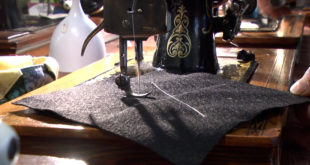 State Senator Ed McBroom has more than just auto insurance reform in his sights as the 2019 legislative session gets underway. The Vulcan Republican has helped put forward bills addressing the ongoing dark store issue and revamping the way members of the state board of education are selected.
State Senator Ed McBroom has more than just auto insurance reform in his sights as the 2019 legislative session gets underway. The Vulcan Republican has helped put forward bills addressing the ongoing dark store issue and revamping the way members of the state board of education are selected.
Dark store legislation, an attempt to keep big box stores from having their property taxes assessed based on the value of the location as if it were vacant, was introduced before by Senator Tom Casperson but stalled. McBroom said, “There’s certain associations that have significant membership of these stores that have found a way to take advantage of our tax system and those organizations continue to oppose any change and they’re able to really spread a certain amount of misinformation about what Tom (Senator Casperson) was trying to do, what I’m trying to do with these bills, what Beau (State Representative LaFave) is trying to do, to fix this dark store problem.”
That misinformation, McBroom says, confuses his colleagues about who to listen to. “It seems so common sense and when you finally get through to one of them about what is actually going on, then you’ve won another victory and then you have to move to the next person and it’s a slow job,” he said.
Besides fighting the dark store battle, McBroom also wants to tackle what he sees as unbalanced representation on the State Board of Education. McBroom said, “What I observed is that the eight members are almost always all from southeast Michigan and occasionally somebody from the west side (of the state).”
McBroom says the candidates that run for those positions are so far down the ballot and most people in the state do not know who they are, the parties nominate somebody who has their own money and a built-in base of support within their own community. Between that small amount of local support and with the help of straight-ticket voting, McBroom says the parties hope that is enough to win during the election.
McBroom says that not the best way to get the most qualified candidates on the board. “This bill directs both parties, when they are nominating their candidates every two years for the State Board of Education, that they rotate across the state where those nominations come from,” he said.
McBroom said this bill is a compromise that keeps the decision of who serves on the board in the hands of the voters but produces a board that represents all parts of the state.
The bill is under consideration in the Senate Education Committee. Similar legislation has been held up in the past, McBroom said, by lawmakers who want to do away with the state board altogether or change the partisan makeup of the board–neither which are of interest to him. “I just don’t care. I’d rather have a Democrat from the U.P. than a Republican from Detroit, anyway,” McBroom said.
 Keweenaw Report Your Source for Local News and Sports
Keweenaw Report Your Source for Local News and Sports





